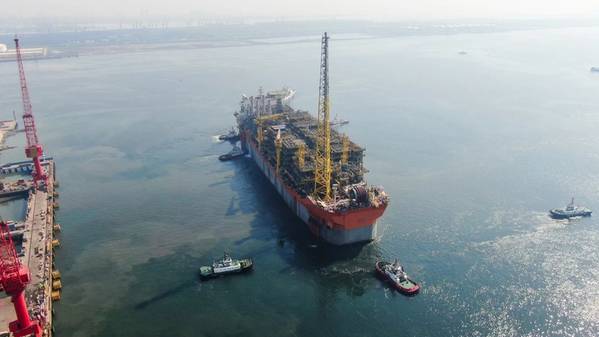
Dutch FPSO leasing specialist SBM Offshore and Japanese industrial group Mitsubishi Heavy Industries Ltd. (MHI) have signed a partnership agreement that will offer a CO2 capture solution for Floating Production Storage and Offloading vessels (FPSO) as they are producing oil and gas from offshore reservoirs.
The agreement follows a successful engineering and design study between the companies demonstrating the technical feasibility and commercial readiness of CO2 capture technology offshore, SBM Offshore said.
The CO2 capture solution will apply MHI’s “Advanced KM CDR ProcessTM” technology, jointly developed with The Kansai Electric Power Co.
The technology is said to enable significant greenhouse gas emissions reductions from FPSOs by capturing CO2 from onboard gas turbines.
It is estimated that the CO2 capture technology can reduce CO2 emissions from overall FPSO operations by up to 70%.
The solution is being developed as part of SBM Offshore’s emissionZERO program and is based on a combination of MHI’s proprietary CO2 capture technology and SBM Offshore’s Fast4ward principles.
According to SBM Offshore, demand for decarbonization of FPSO operations is expected to increase rapidly.
Through this collaboration, the companies will aim to open the door to offshore CO2 capture and storage development, making a concrete contribution to carbon neutrality efforts, the Dutch firm added.